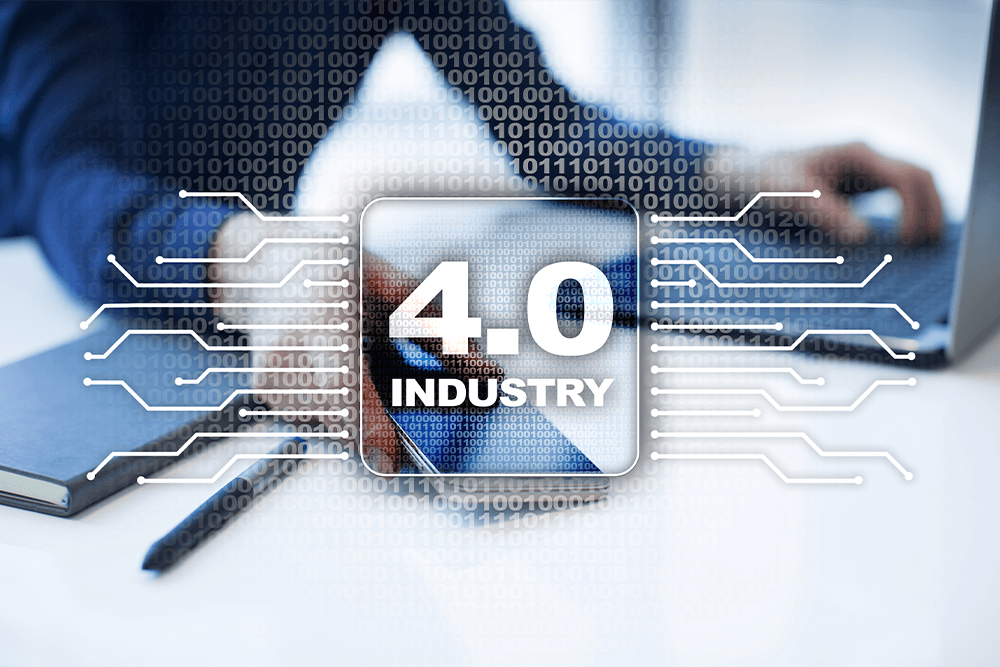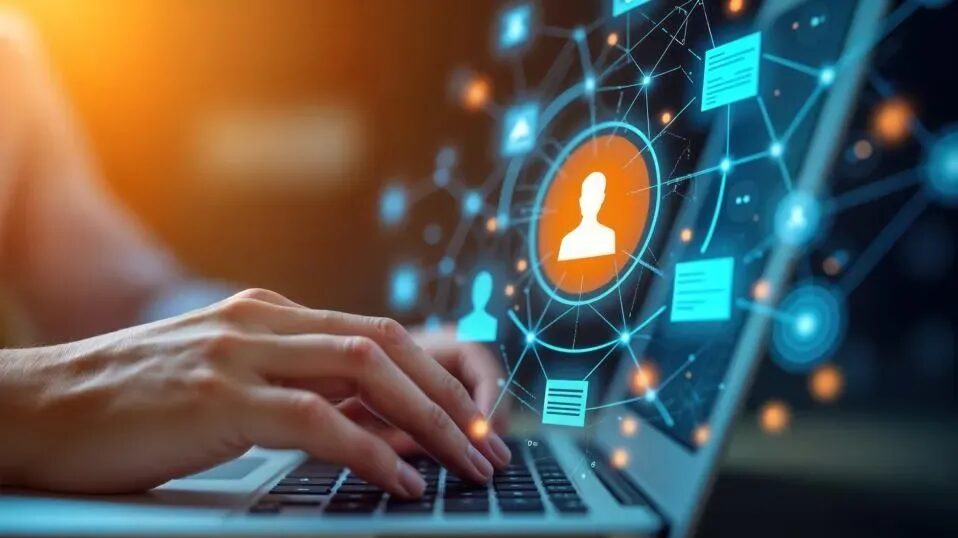The 4th Industrial Revolution Is Here – Are You Ready?
2 July 2021
We’re on the cusp of the Fourth Industrial Revolution, or Industry 4.0. It’s quite different than the three Industrial Revolutions that preceded it—steam and water power, electricity and assembly lines, and computerization—because it will even challenge our ideas about what it means to be human.

What is the Fourth Industrial Revolution?
The Fourth Industrial Revolution describes the exponential changes to the way we live, work and relate to one another due to the adoption of cyber-physical systems, the Internet of Things and the Internet of Systems. As we implement smart technologies in our factories and workplaces, connected machines will interact, visualise the entire production chain and make decisions autonomously. This revolution is expected to impact all disciplines, industries, and economies. While in some ways it’s an extension of the computerization of the 3rd Industrial Revolution (Digital Revolution), due to the velocity, scope and systems impact of the changes of the fourth revolution, it is being considered a distinct era. The Fourth Industrial Revolution is disrupting almost every industry in every country and creating massive change in a non-linear way at unprecedented speed.
In his book, The Fourth Industrial Revolution, Professor Klaus Schwab, founder and executive chairman of the World Economic Forum, describes the enormous potential for the technologies of the Fourth Industrial Revolution as well as the possible risks. He said, “The changes are so profound that, from the perspective of human history, there has never been a time of greater promise or potential peril. My concern, however, is that decision-makers are too often caught in traditional, linear (and non-disruptive) thinking or too absorbed by immediate concerns to think strategically about the forces of disruption and innovation shaping our future.”
What’s the promise of the Fourth Industrial Revolution?
Indeed, one of the greatest promises of the Fourth Industrial Revolution is to potential is to improve the quality of life for the world’s population and raise income levels. For those in First World countries who already enjoy some of the benefits of a connected world as well as new products and services developed to take advantage of the technologies, we appreciate the efficiencies and conveniences provided such as booking a flight to getting movie recommendations. Our workplaces and organisations are becoming “smarter” and more efficient as machines, and humans start to work together, and we use connected devices to enhance our supply chains and warehouses. The technologies of the Fourth Industrial Revolution might even help us better prepare for natural disasters and potentially also undo some of the damage wrought by previous industrial revolutions.
What’s the potential peril of the Fourth Industrial Revolution?
World governments need to adequately plan for and regulate our new capabilities to ensure our security. There might be increased social tensions as a result of the socioeconomic changes brought by the Fourth Industrial Revolution that could create a job market that’s segregated into “low-skill/low-pay” and “high-skill/high-pay” segments. Typically, first-adopters of technology are the ones with the financial means to secure it, and that technology can catapult their continued success increasing the economic gaps. Some jobs will become obsolete. Additionally, the changes might develop so swiftly, that even those who are ahead of the curve in terms of their knowledge and preparation, might not be able to keep up with the ripple effects of the changes.
How best to prepare for the Fourth Industrial Revolution?
Schwab calls for leaders and citizens to “together shape a future that works for all by putting people first, empowering them and constantly reminding ourselves that all of these new technologies are first and foremost tools made by people for people.”
Humans must be proactive in shaping this technology and disruption. This requires global cooperation and a shared view of how technology is reshaping our economic, social, cultural and individual lives.
Companies should invest in their technical infrastructure and data analysing capabilities. All businesses must be making a move to be smart, connected organisations or they will soon fall behind the competition.
We need to develop leaders with the skills to manage organisations through these dramatic shifts. As professionals, we need to embrace change and realise that what our jobs are today might be dramatically different in the not too distant future. Our education and training systems need to adapt to better prepare people for the flexibility and critical thinking skills they will need in the future workplace.
Related Articles
The Great Skill Shift: How AI Is Transforming 70% Of Jobs By 2030
By now, “smart” versions exist of just about every home appliance, gadget and gizmos we can think of. However, manufacturers continue[...]
Bridging The AI Divide: Why Europe’s AI Future Depends On Transformative Innovation
By now, “smart” versions exist of just about every home appliance, gadget and gizmos we can think of. However, manufacturers continue[...]
Forget ChatGPT: Why AI Agents Are The Real Game-Changer For Financial Services
By now, “smart” versions exist of just about every home appliance, gadget and gizmos we can think of. However, manufacturers continue[...]
Agentic AI Enters Management: Taco Bell’s Byte-Sized Approach To Virtual Restaurant Leadership
By now, “smart” versions exist of just about every home appliance, gadget and gizmos we can think of. However, manufacturers continue[...]
Beyond ChatGPT: The 5 Toughest Challenges On The Path To AGI
By now, “smart” versions exist of just about every home appliance, gadget and gizmos we can think of. However, manufacturers continue[...]
The AI Leadership Crisis: Why Chief AI Officers Are Failing (And How To Fix It)
By now, “smart” versions exist of just about every home appliance, gadget and gizmos we can think of. However, manufacturers continue[...]
Sign up to Stay in Touch!
Bernard Marr is a world-renowned futurist, influencer and thought leader in the fields of business and technology, with a passion for using technology for the good of humanity.
He is a best-selling author of over 20 books, writes a regular column for Forbes and advises and coaches many of the world’s best-known organisations.
He has a combined following of 4 million people across his social media channels and newsletters and was ranked by LinkedIn as one of the top 5 business influencers in the world.
Bernard’s latest book is ‘Generative AI in Practice’.










Social Media